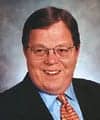Battery sales continue to make up 5-10% of the average dispensing office’s total revenues. Yet, in recent years, dispensing professionals have been losing market share to mass merchandisers and pharmacies relative to hearing aid batteries. This is unfortunate and unnecessary; dispensing professionals continue to have major advantages over these outlets. Here’s some simple tips on how you can make your battery sales a significant profit center for your dispensing office/practice.
As a hearing care professional who wants to have a successful practice, you’re faced with the ongoing challenge of growing your business and increasing revenue. So, you’re doing all the right things, like adding patients, providing top-notch care, and dispensing high-quality hearing aids and hearing aid batteries. Or are batteries missing from this mix? By not offering hearing aid batteries, many dispensing professionals are missing an obvious opportunity to add to their bottom line while providing their patients with a value-added product and service.
Are Profits Leaving the Office With Your Patients?
Research shows that hearing care professionals dispense virtually all of the hearing instruments used in the US, but a much lower percentage of the hearing aid batteries. These sales—sales that could be yours— are lost to retail outlets like mass-market discount chains and drug stores. However, many savvy dispensing professionals have discovered that, with the appropriate programs and tools in place, hearing aid battery sales can be a valuable benefit for patients and a profit center for professionals as well. In fact, for the following two practices, the success they’ve enjoyed selling hearing aids batteries has made it a vital part of their business.
• Business Case Study #1: Kenneth Smith, PhD, of Hearing Associates in Shawnee Mission, Kan, calls it “ludicrous” to let patients buy hearing aid batteries somewhere other than the office that dispenses the aids. He understands the mindset of some dispensing professionals: it doesn’t make sense to sell hearing aid batteries when patients can buy them anywhere. However, he believes that battery sales transcend simply dollars alone. “Batteries are part of the whole package and speak to the relationship with your patient,” he explains. “At the very least, it keeps them coming in the door. And by sending them elsewhere to purchase batteries, you lose the opportunity for additional contact, internal marketing, and problem identification,” he adds.
The first thing Smith emphasizes to his patients is that he offers the best battery on the market. “We provide a battery that offers an unconditional guarantee; if there are any problems, the patient gets a whole new package, not just a new battery,” he says. “You want your patients to use the best battery available and you want to make it easy.” He includes a supply of batteries at the point of sale, which builds brand identification and demonstrates that he endorses a unique product at a competitive price. “A manufacturer of high-quality hearing aid batteries is continually reevaluating the product and offering upgrades, which reinforces the cost/value concept to the patient,” says Smith.
The key element to his plan is battery clubs. Included with the initial supply of batteries when a patient receives his/her hearing aid is a $10 “Welcome to the Practice” coupon to be used toward future purchases in the battery club. “Battery clubs have gotten a bad rap because they can be so complicated—with punch cards and paperwork and too much for the patient to manage,” he explains.
The battery club coordinated by Hearing Associates is all about offering ease and convenience and demonstrating how it will save time and money. Battery club members have the option of two different plans based on their power needs. They simply make a phone call, send an email, or submit a form online to place a reorder, and the staff does the rest. Patients also have the option of signing up for the battery club online. Smith prices batteries to be competitive in the market, so his patients get a fair value. As a unique incentive, he offers a “90s Club,” where patients ages 90 and older are provided complimentary batteries for life. In addition to the battery club, Hearing Associates provides the convenience of counter sales for walk-in patients.
Battery clubs are a win-win proposition for both the professional and the patients. Research at Rayovac shows that offices with battery clubs sell 20% more batteries and give patients an easy way to purchase batteries—something a retail store cannot provide.
Smith also notes that he relies on the expertise of a manufacturer who provides a close marketing partnership. Sales representatives may be able to provide the product and information on the product; however, a marketing partner who works closely with your business is not only knowledgeable about the product, but that representative has access to a peer group across the country. Knowing what is working in other practices and how best to apply them to your practice can be a great benefit. Additionally, programs that fit your business and conveniences like online ordering and reward programs for battery purchases can also be important.
Smith questions why batteries and other accessories are considered any less important than the hearing aid. “Your professional guidance and control over the total package is key,” he says. “By giving your patients a convenient and cost-efficient way to purchase hearing aid batteries, you maintain that quality control.”
• Business Case Study #2: Dennis Hampton, PhD, of Westchester Audiology Center in White Plains, NY, agrees with Smith’s philosophy on battery sales. He has had phenomenal success selling hearing aid batteries to his patients via battery clubs. Hampton believes there are three essential components to successful battery club implementation:
- Convenience;
- Savings; and
- Communication.
“Make your battery club easy for patients, and they’ll be willing to pay slightly more for that convenience,” says Hampton, who, in addition to running his practice, publishes Hearing HealthCare News, a patient newsletter for audiologists. “The fact is, they would rather purchase from someone they know, particularly a trusted healthcare provider.”
Hampton says that coupons and battery punch cards are not advantageous because patients don’t want to keep track of them. Instead, his office keeps track of all orders (that can be phoned in day or night) and payments. There’s nothing for patients to keep track of, and Hampton already knows the battery sizes needed and other preferences. There are also no costs to join and no postage costs for battery shipments. “You already have a relationship with the patient. These conveniences allow them to get in the habit of buying batteries from you,” he explains.
Though Hampton notes that battery clubs offer many more important advantages beyond price, cost-competitiveness is a factor. At his Westchester Audiology office, battery club patients receive a 20% discount. The discount is given for two reasons:
1) Patients have committed to the battery club; and they pay in advance for their batteries. The discount obviously benefits the patient while providing good cash flow for the business.
2) It also guarantees patients will return to the office to get their batteries because they’ve already paid for them. If you dramatically increase battery sales, you don’t have to compete on price alone, he adds.
The best program in the world means nothing if your patients aren’t aware of it, says Hampton. That’s why communication plays such an essential role in his selling success. He communicates the features of the battery club in a patient newsletter and a card that is handed out to new patients. Hampton also says that a battery discussion should be part of every checkout procedure. “And be sure to train your staff to invite patients to join the battery club whenever they ask about batteries,” he says. “Communicate the attributes of the battery club over and over and at every opportunity.”
He gets his hearing aid users into the “battery club habit” by including an initial club membership with their hearing aid purchase. Hampton emphasizes that battery club administration is not difficult or time-consuming; on the contrary, he finds administering the battery club even easier than a counter transaction.
Hampton also offers an added incentive to battery club members by applying half of all money spent on battery club purchases to the patient’s next hearing aid purchase.
As a result of the creative efforts of Hampton and his staff, nearly 70% of his patients take advantage of buying batteries through a battery club. “When all is said and done, hearing aid battery sales accomplish two primary goals; they help my patients and my practice,” he says.
Other Opportunities in the Office
In addition to the proven success of battery clubs, merchandising and display of hearing aid batteries can also increase sales. Effective displays are designed to attract, inform, and influence a consumer’s purchasing decision. In an office, an eye-catching display is an easy way to reinforce the consumers’ perceived need for the product simply by having it readily available. There are a wide variety of displays available, including display racks that use minimal space by hanging on a wall or sitting on a counter. A skilled battery manufacturer representative will be able to advise you on display options as part of an overall program.
The Power of Perception
When patients are not offered the option to buy top-quality hearing aid batteries through your office, the unintended message may be “any battery will do.” In fact, it pays to remember that the battery is the source of power for your product. Your patient has just paid for a premium hearing aid and quality professional guidance. It doesn’t make sense to skimp on the very product that will make that hearing aid perform at the optimal level. The performance of high-quality, long-lasting hearing aid batteries can reflect on your professionalism and service—just as the poor performance of a lesser battery can, whether or not the consumer buys it from you. If patients buy hearing aid batteries somewhere else, they may buy their aids there too. Providing your patients the option of high-quality hearing aid batteries preserves the integrity of the professional market.
Don’t Forget Your Batteries!
Smart retailers who sell toys, games, and other battery-operated devices know that sales can result from something as simple as asking, “Do you need batteries?” There are similar ways you can encourage battery sales that require very little effort on the part of you or your office staff. Remember, you can’t adequately evaluate the impact of hearing aid battery sales if you’re not actively selling them.
- Make a commitment to really promote batteries versus just having them available in a drawer or in an obscure location. Many hearing care professionals have found that placing a battery display in both the reception area and the testing room can help drive battery sales.
- Market your hearing aid batteries by consistently communicating to your patient base about batteries and related promotions, including battery clubs.
- Use your regular communication vehicles, such as newsletters, postcards, etc, to remind patients that you offer hearing aid batteries. This will also serve to promote patient loyalty.
- When patients visit the office, be sure your staff asks, “Do you need batteries today?”
- Make batteries a regular part of your checkout evaluation.
Contact your hearing aid battery representative for information and assistance on a selling program that best meets the needs of your practice. You may discover, as many other hearing care professionals have, that with a small investment in effort, hearing aid battery sales can offer considerable benefits for both your business and your patients. w


|
Correspondence can be addressed to Tom Begley, Rayovac Corp, 601 Rayovac Drive, Madison, WI 53711-2497; email: [email protected].





